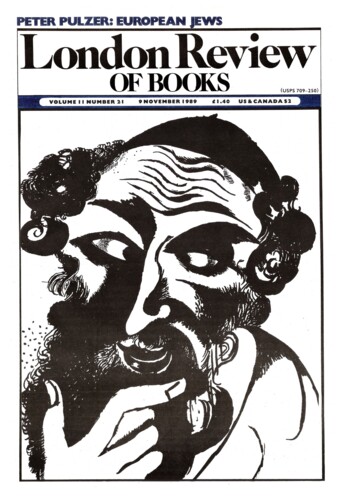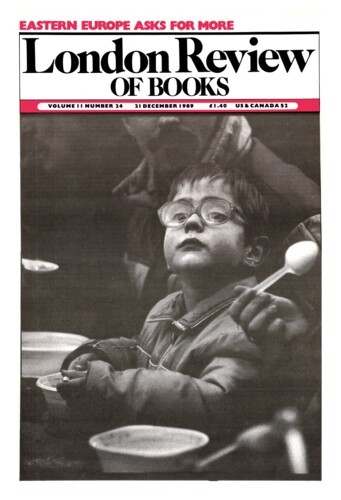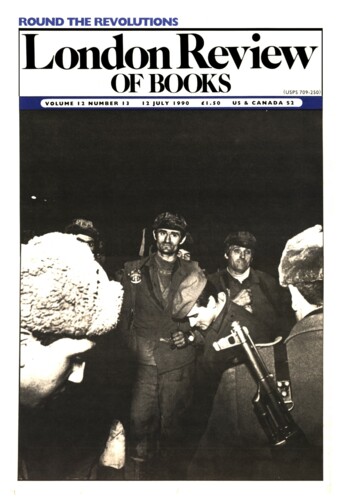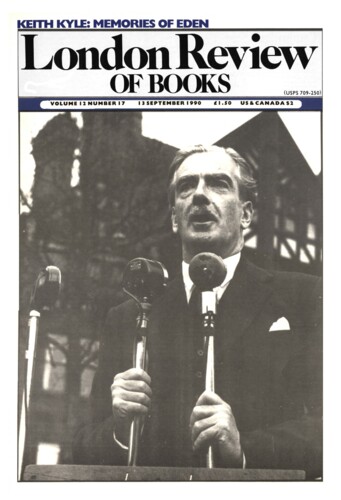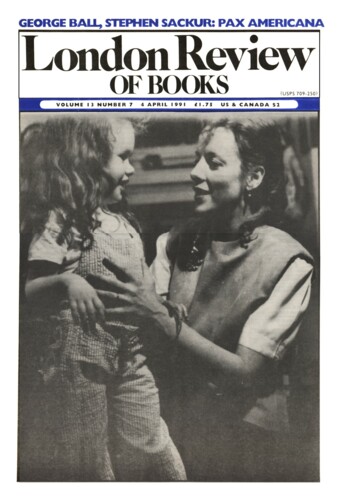In the first place, let’s try to forget the word ‘experimental’, which has always been one of criticism’s more useless bits of terminology. There is really only one distinction to be made: between those novelists who think carefully about form, and those who do not. If there is anything new to be said, after all, the chances are that there will have to be found new ways of saying it, and yet nothing seems to send readers running for cover more quickly than the suggestion that they are to be thrown in at the deep end of the novel’s liquid possibilities. Perhaps this explains why one of this country’s more ambitious fictional enterprises has, for the last 11 years, been taking shape more or less under cover of secrecy. Nicholas Mosley’s Catastrophe Practice, published in 1979, was the first of a series of five highly intelligent novels, ostensibly concerned with the shifting relationships of a small group of characters, and linked less by narrative than by a patchwork of recurring images and thematic obsessions. The first book introduced the protagonists by the roundabout means of three plays and a short novel: it also included some polemical essays which took pains to set out the rationale behind the project very clearly. They stressed the need to devise new structures of thinking and language which would ‘provide for both art and science an encompassing covenant’: the need for a new literature of self-consciousness (‘the theatre has been accustomed to observe how people behave; what might now be observed is people’s observing’); and the need for new literary forms which jettison the dishonesties of tragedy and comedy in favour of a more explicitly liberal, optimistic and humanist position (this in the wearied knowledge that ‘to suggest working optimism in a sophisticated world is to be thought presumptuous’). The second novel, Imago Bird, followed the London-based adventures of Bert, a mixed-up 18-year-old who – like Mosley himself – happened to be related to a famous politician and afflicted with a nasty stammer. Serpent, the third in the series, was set almost entirely on an aeroplane carrying Bert’s sister Lilia and her husband Jason to a film location in Israel. The eponymous heroine of Judith was a young actress who became, at various points, the lover of each of the male protagonists. And now we have the concluding volume, Hopeful Monsters, which surprises both in the density of its intellectual lumber and in its comparatively straightforward way of unloading it onto the reader. In tracing the love affair of Max Ackerman (previously referred to as ‘the Professor’) and Eleanor Anders (often identified in the earlier novels by her pudding-basin haircut) it manages to take in most of the scientific and political highlights of the Twenties and Thirties: unrest in Berlin, the rise of the Nazis, the Spanish Civil War, the splitting of the atom – it’s all here.’
In the first place, let’s try to forget the word ‘experimental’, which has always been one of criticism’s more useless bits of terminology. There is really only one...
